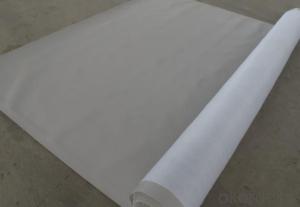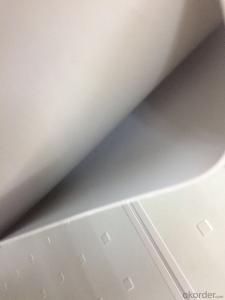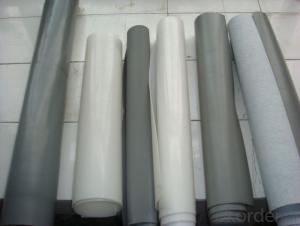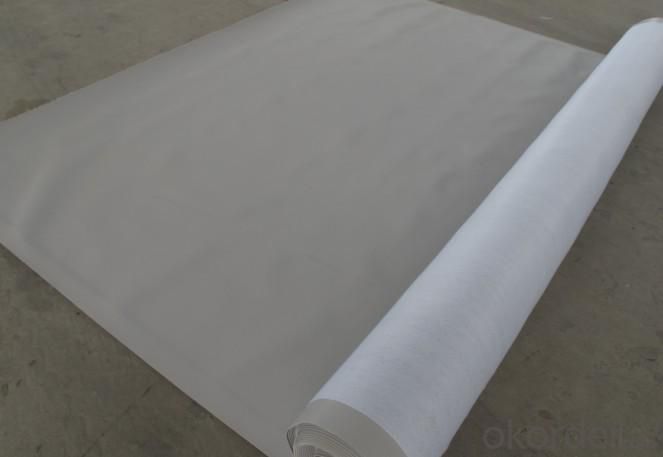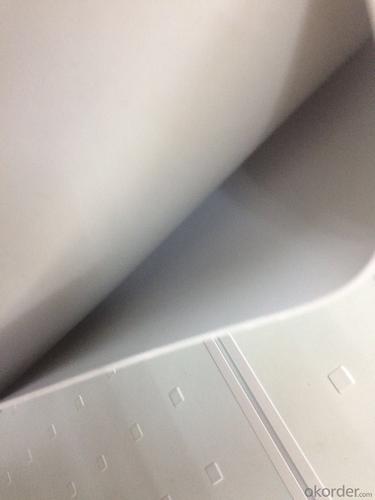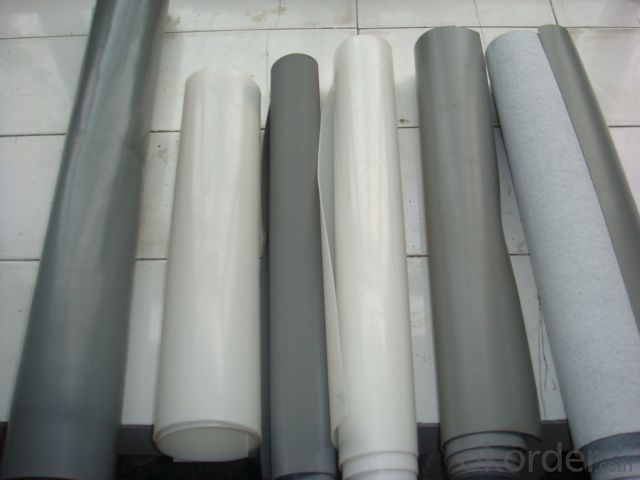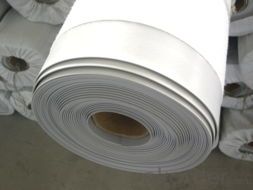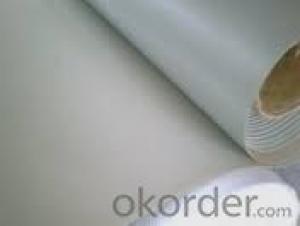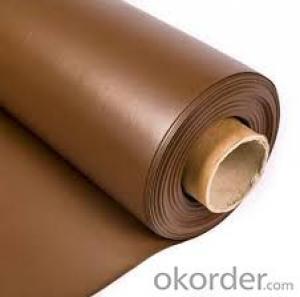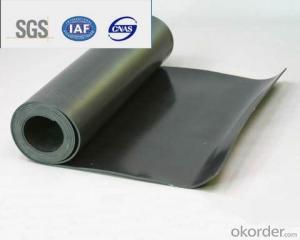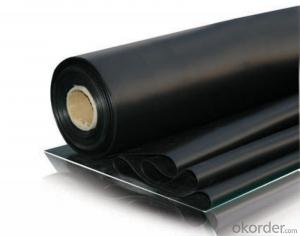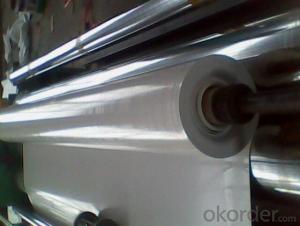PVC Waterproofing Membrane 1.2 mm from Manufactory
- Loading Port:
- Tianjin
- Payment Terms:
- TT OR LC
- Min Order Qty:
- 5000 m²
- Supply Capability:
- 100000 m²/month
OKorder Service Pledge
OKorder Financial Service
You Might Also Like
PVC waterproofing membrane
Polyvinyl Chloride (PVC) waterproof membrane is a new polymer waterproof membrane which is made from polyvinyl chloride resin, and mixed with plasticizer, filler, antioxygen, ultraviolet absorber and other auxiliaries.
Product Applications:
1. All kinds of roofs, such as steel structure roof, planted roof etc.
2. Underground engineering, such as basement, subways, tunnels, air raid shelter, etc.
3. Other projects like artificial lake, dam, water reservoir, grain storehouse, etc.
Product Features:
1. Excellent aging resistance.
2. Root resistant penetration, specially used on planting roof.
3. Welding installation. Joints are solid and environment friendly, no pollution.
4. High tensile strength, good elongation and dimensional stability.
5. Good plasticity, easy and suitable for details installation.
6. Fireproof. Fire extinguished out of the ignition resource.
Product Specifications:
1. Size: 2.05(width)*20m (length), as clients' request
2. Thickness: 1.2mm; 1.5mm; 2.0mm, etc
3. Type: Homogeneous, Reinforced, Fabric back
4. Exposed and Non-exposed
5. Color: white, Grey or customized
FAQ:
Q: Can I get samples?
A: Yes, we could arrange samples for free.
Q: Can I do the third party testing before loading?
A: Yes, we could accept the third party testing.
Q: Which kind of payment in your company?
A: We could accept TT, LC at sight, etc.
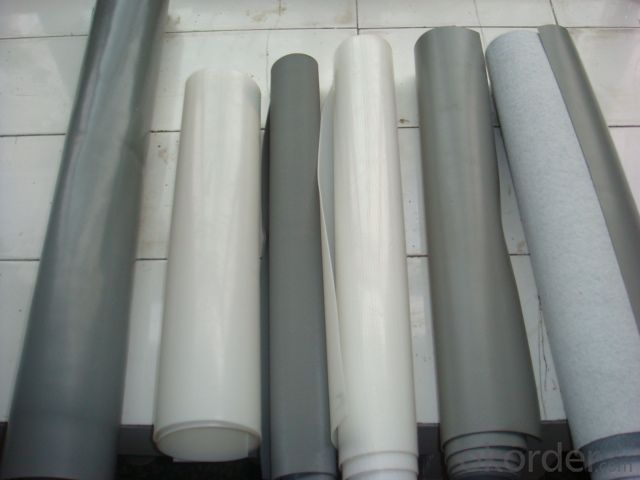
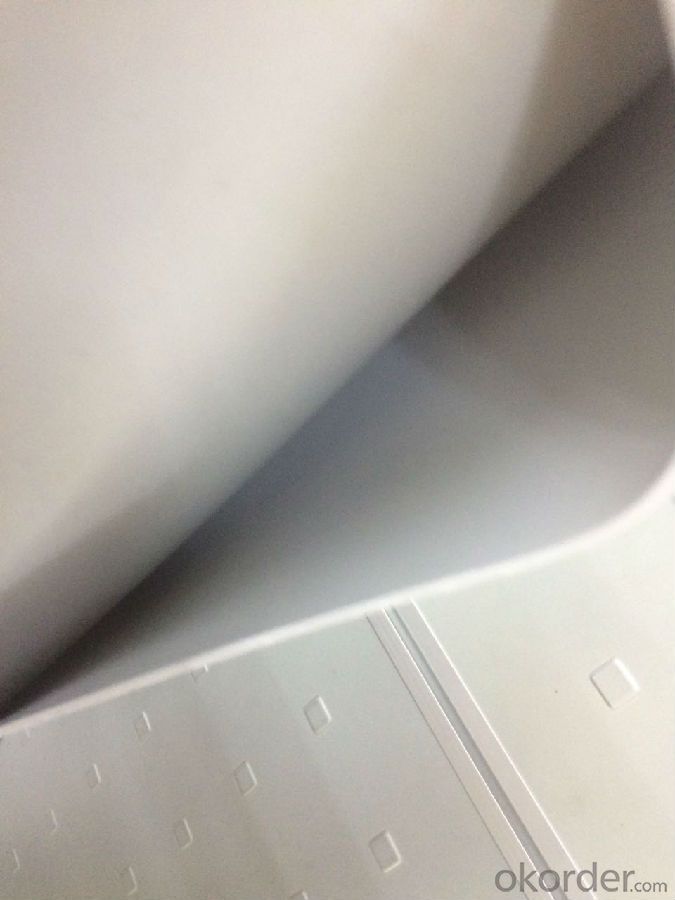
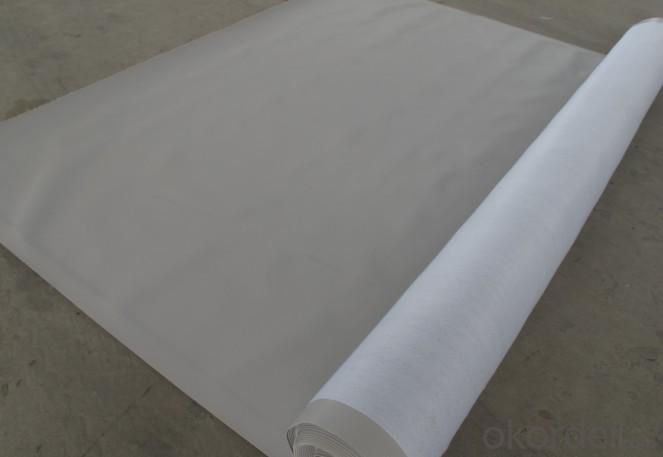
- Q: Can a waterproofing membrane be used in steam rooms?
- Yes, a waterproofing membrane can be used in steam rooms. Steam rooms generate high levels of moisture and heat, which can cause damage to the walls and floors. A waterproofing membrane creates a barrier that prevents moisture from seeping through and protects the underlying structure. It is essential to choose a membrane specifically designed for steam room application to ensure proper performance and durability.
- Q: Can a waterproofing membrane be used for loading docks and warehouses?
- Yes, a waterproofing membrane can be used for loading docks and warehouses. Waterproofing membranes are designed to provide a protective layer against water infiltration, which can be particularly important in areas like loading docks and warehouses where there is a high likelihood of exposure to moisture. These membranes are typically made from materials like asphalt, rubber, or polyurethane, which are highly resistant to water penetration. Additionally, waterproofing membranes can also provide protection against other forms of damage, such as chemical spills or abrasions, making them an ideal solution for commercial and industrial spaces. By preventing water from seeping into the building structure, a waterproofing membrane can help maintain the integrity of the loading docks and warehouses, prolonging their lifespan and reducing the risk of structural damage.
- Q: Can a waterproofing membrane be used for concrete tank linings?
- Concrete tank linings can make use of waterproofing membranes, which are frequently employed in construction to obstruct water penetration and offer a protective shield. By applying a waterproofing membrane to the inner surfaces of a concrete tank, the infiltration of water and subsequent harm can be effectively averted. This becomes especially crucial for tanks that store fluids or chemicals, as any leakage can result in contamination or structural decay. By utilizing a waterproofing membrane, the tank can be shielded against water ingress, guaranteeing its durability and preserving its structural soundness.
- Q: How do waterproofing membranes prevent water leakage?
- Waterproofing membranes are designed to prevent water leakage by creating a barrier between the surface and the water. These membranes are typically made of materials such as bitumen, PVC, or EPDM, and are applied to the surface in a liquid or sheet form. The primary way in which waterproofing membranes prevent water leakage is by forming a continuous and impermeable layer. This layer acts as a physical barrier that prevents water from seeping through the surface. The membranes are applied in such a way that they cover the entire surface, including joints, cracks, and seams, ensuring that there are no areas vulnerable to water penetration. Additionally, waterproofing membranes often have excellent adhesive properties, allowing them to bond tightly to the surface. This ensures that there are no gaps or spaces where water could enter. By adhering tightly to the surface, the membranes also provide protection against the movement of water vapor, preventing moisture buildup and potential damage to the structure. Furthermore, waterproofing membranes are specifically designed to be highly resistant to water and moisture. They are made from materials that do not degrade or deteriorate when exposed to water, ensuring their longevity and effectiveness. This resistance to water also helps to prevent the membrane from becoming permeable over time. In summary, waterproofing membranes prevent water leakage by creating a continuous and impermeable barrier on the surface. They cover the entire surface, adhere tightly to prevent gaps, and are resistant to water and moisture. By implementing these measures, waterproofing membranes provide reliable protection against water infiltration and subsequent damage.
- Q: Can a waterproofing membrane be used for zoos or aquariums?
- Zoos or aquariums can definitely utilize waterproofing membranes. These membranes are specifically designed to create a protective barrier against water infiltration, making them an excellent choice for preventing water damage and leakage in such environments. They can be applied to different surfaces, such as concrete or steel, to establish a watertight seal and prevent water from seeping into the structure or habitat. Aquariums often rely on waterproofing membranes to ensure that their tanks remain completely watertight and free from leaks, as this is crucial for the well-being of the aquatic animals. Similarly, in zoos, waterproofing membranes can be applied to animal enclosures or exhibit areas to safeguard the structures from water damage and uphold a safe and healthy environment for the animals. Moreover, these membranes possess resistance against various chemicals and can withstand harsh conditions, making them an excellent safeguard against potential chemical spills. All in all, waterproofing membranes are a highly suitable option for zoos or aquariums, as they offer an effective solution for preserving the integrity of the structures and habitats, averting water damage, and ensuring the safety and well-being of the animals.
- Q: Can a waterproofing membrane be used to repair existing water leaks or damage?
- Yes, a waterproofing membrane can be used to repair existing water leaks or damage. Waterproofing membranes are designed to create a barrier that prevents water from penetrating through surfaces such as roofs, walls, or foundations. By applying a waterproofing membrane to areas where water leaks or damage have occurred, it can effectively seal off the affected area and prevent further water intrusion. However, it is important to note that the success of the repair depends on the extent of the damage and the quality of the waterproofing membrane used. It is always recommended to consult with a professional to assess the situation and determine the best course of action for repairing existing water leaks or damage.
- Q: Construction Measures for Waterproof Coil in Winter
- 3. Do the seam and the end of the handle. In order to improve the reliability of the winter construction, to prevent the waterproof layer after the hot-melt paving seam with the possibility of seaming, requiring the mouth and the end of the mouth are sealed with sealing material to improve the waterproof impermeability.
- Q: How to choose waterproof membrane
- Second, from the fetal base to identify the quality of the coil Generally from the product on the cross-section of visual inspection, the specific method can be purchased products by hand to tear it, observe the cross-section exposed fetal fiber, composite tires tear after the section of the grid cloth ribs exposed, this time It can be concluded that the product must be a composite tire coil, what kind of composite tire membrane with physical properties test - soluble content test to observe the exposed fetal base. And simple polyester tires, glass fiber tires after tearing the section only polyester or fiberglass fiber exposed.
- Q: Can a waterproofing membrane be used for museums or art galleries?
- Yes, a waterproofing membrane can be used for museums or art galleries. It plays a crucial role in protecting valuable artwork and artifacts from moisture damage, mold, and other environmental factors. By creating a barrier against water penetration, a waterproofing membrane helps to maintain the integrity and longevity of the exhibits, ensuring their preservation and preventing any potential harm caused by moisture.
- Q: Can a waterproofing membrane be used for planter boxes?
- Yes, a waterproofing membrane can be used for planter boxes to prevent water leakage and protect the surrounding surfaces from moisture damage.
Send your message to us
PVC Waterproofing Membrane 1.2 mm from Manufactory
- Loading Port:
- Tianjin
- Payment Terms:
- TT OR LC
- Min Order Qty:
- 5000 m²
- Supply Capability:
- 100000 m²/month
OKorder Service Pledge
OKorder Financial Service
Similar products
Hot products
Hot Searches
Related keywords
